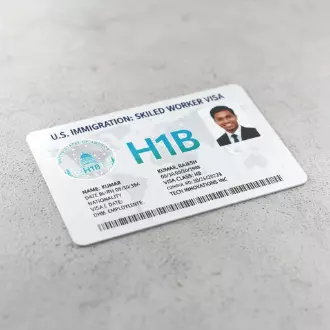US firms shift focus to India’s GCCs for offshore ops

New Delhi: US corporations are accelerating their reliance on India for offshore operations after a steep hike in H-1B visa fees imposed by President Donald Trump, according to industry experts and economists. The move is giving new momentum to India’s Global Capability Centres (GCCs), which are increasingly handling high-value work once concentrated in the United States.
Earlier this month, Trump signed an executive order imposing a $100,000 (about Rs 88.6 lakh) fee on new H-1B visa applications for skilled foreign workers. The revised charge is nearly 70 times higher than the earlier range of $1,500–4,000 (Rs 1.3–3.5 lakh). The administration has argued that the curbs are needed to protect American jobs and address national security concerns, but the abrupt increase has created uncertainty across industries.
India, already home to more than half of the world’s GCCs, is emerging as a key beneficiary of the policy shift. The country hosts 1,700 such centres, accounting for over 50 per cent of the global total. Once limited to IT support, these operations have grown into hubs of innovation, spanning luxury car design, artificial intelligence, and drug discovery, Reuters reported. “GCCs are uniquely positioned for this moment. They serve as a ready in-house engine,” Rohan Lobo, partner and GCC industry leader at Deloitte India, told Reuters. Lobo said several US companies are reassessing their workforce needs and drawing up plans to shift critical functions to India. “Plans are already underway,” he noted, citing financial services and technology firms, especially those linked to federal contracts.
Industry leaders expect GCCs to take on “more strategic, innovation-led mandates” over time. Sectors such as product development, cybersecurity, and analytics are likely to see significant relocation of work to India, Reuters reported.
The policy changes coincide with fresh legislative moves in Washington. On Monday, Senate Judiciary Committee Chairman Chuck Grassley and Ranking Member Dick Durbin reintroduced the H-1B and L-1 Visa Reform Act, which aims to tighten rules on worker visa programmes by targeting loopholes and alleged misuse.
Despite the political backdrop, India’s GCC landscape continues to expand. Projections suggest the country could host over 2,200 centres by 2030, representing a market of nearly $100 billion, Reuters said. Lalit Ahuja, founder and CEO of ANSR, whose firm has supported companies like FedEx, Bristol-Myers Squibb, Target and Lowe’s in establishing GCCs, said recent developments have created “a sense of urgency”. He added, “This whole ‘gold rush’ will only get accelerated.”
Ramkumar Ramamoorthy, former managing director of Cognizant India, observed that the Covid-19 pandemic had already demonstrated the feasibility of remote delivery for critical technology tasks. “Extreme offshoring” could now become a reality, he said.
Major H-1B sponsors—including Amazon, Microsoft, Apple, Alphabet, JPMorgan Chase and Walmart—already operate large facilities in India, though Reuters noted that the companies declined comment on the sensitive issue. One India-based retail GCC head remarked, “Either more roles will move to India, or corporations will near-shore them to Mexico or Colombia. Canada could also take advantage.” Still, challenges remain. A proposed US HIRE Act, which would levy a 25 per cent tax on overseas outsourcing payments, has introduced further uncertainty. Some firms are pressing ahead with expansion in India, while others are adopting a cautious approach. “For now, we are observing and studying, and being ready for outcomes,” Reuters quoted the India head of a US drugmaker’s GCC as saying.



